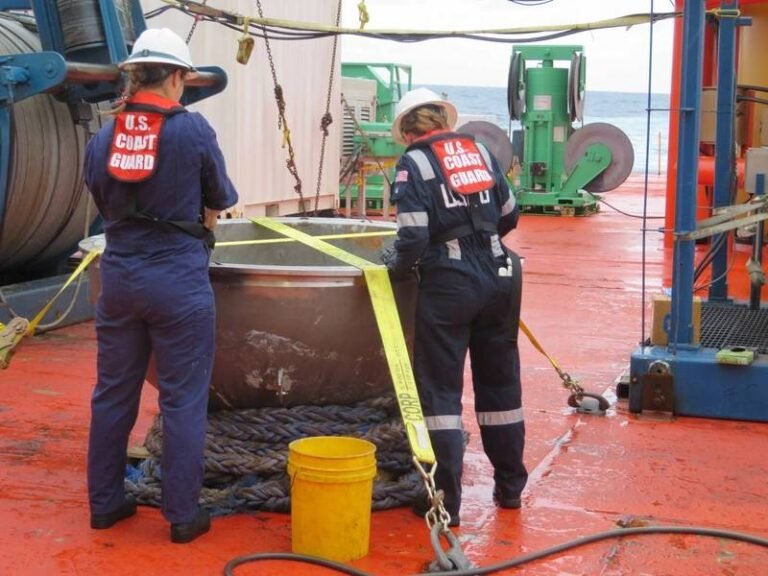The Tragic Titan Submersible Incident: A Preventable Catastrophe
The year 2023 marked a dark chapter in maritime history with the catastrophic implosion of the Titan submersible, resulting in the loss of five lives. However, a recent investigation by the U.S. Coast Guard has shed light on the preventable nature of this tragedy, attributing it to the vessel’s flawed safety culture and operational practices.
The Titan’s Fateful Descent
The ill-fated Titan was on a tourist expedition to explore the Titanic wreck when it vanished during a descent, severing all communication with its support ship. Following a frantic four-day search, the shattered remnants of the submersible were discovered 1,600 feet (488 meters) from the iconic bow of the sunken Titanic, which claimed over 1,500 lives in 1912.
OceanGate, the U.S.-based company responsible for managing the tourist submersible, promptly halted all operations in the aftermath of the incident. A company spokesperson expressed profound condolences to the families of the victims and pledged full cooperation with the Coast Guard’s inquiry.
Avoidable Tragedy
Chair of the U.S. Coast Guard Marine Board of Investigation, Jason Neubauer, unequivocally stated that the Titan disaster was preventable. He emphasized the urgent need for enhanced oversight and regulatory frameworks to address novel concepts in maritime operations.
Chloe Nargeolet, daughter of the late French oceanographer Paul-Henri Nargeolet who perished in the submersible, voiced satisfaction with the investigative findings. She underscored the critical lapses in OceanGate’s safety protocols and emphasized that the tragedy could have been averted.
Root Causes of the Tragedy
The investigative board identified OceanGate’s deficient design, certification, maintenance, and inspection processes for the Titan as primary factors contributing to the disaster. Additionally, a toxic workplace culture within OceanGate, coupled with an inadequate regulatory framework for submersibles, exacerbated the risks associated with the operation.
The report highlighted OceanGate’s history of evading regulatory scrutiny through intimidation tactics and scientific exemptions, underscoring the need for stringent oversight in such operations. Failure to address known hull anomalies and neglecting data from the submersible’s monitoring system were cited as critical oversights preceding the expedition.
Lessons Learned
The investigation underscored the importance of timely interventions and regulatory compliance in preventing such tragedies. It called for robust whistleblower processes, effective government cooperation, and proactive safety measures to avert similar incidents in the future.
As the maritime community reflects on the Titan submersible disaster, the imperative for stringent safety standards and regulatory vigilance looms large. The lessons learned from this tragedy must serve as a catalyst for transformative changes in maritime operations to ensure the safety of all seafarers and passengers.
(Reuters – Reporting by Shubham Kalia in Bengaluru and David Shepardson in Washington and Layli Foroudi; Editing by Bernadette Baum and Howard Goller)

